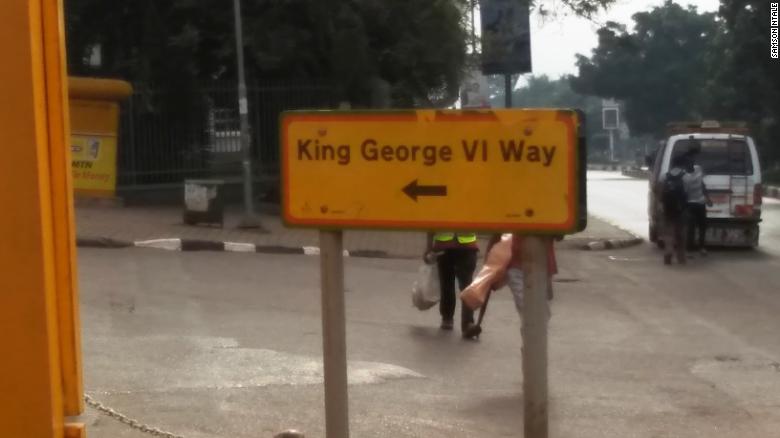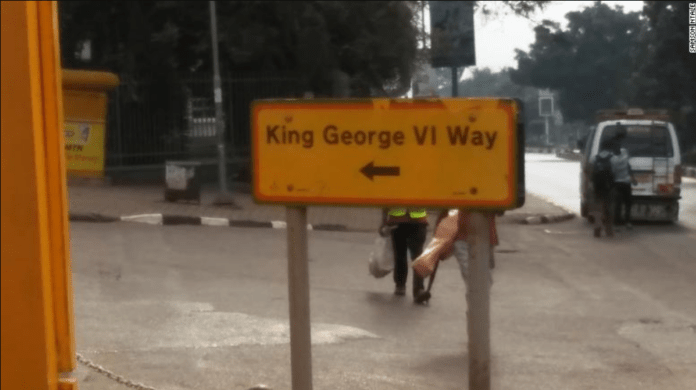Ternan Avenue, a long stretch of road named after British Col. Trevor Ternan lies beside the presidential state house in Uganda.
In the heart of capital city Kampala, another street named after King George VI leads visitors and lawmakers to the country’s parliament.
Originally called the Kazinga National Park, Uganda’s most popular game reserve was renamed after Queen Elizabeth II to commemorate the monarch’s visit to the British colony in 1954.
Streets and monuments named after colonialists and British monarchs can be found throughout Uganda, a former British colony, according to campaigners, who say it’s time to remove and rename them.

They have petitioned lawmakers to trigger a legislative process to rename these landmarks after their national heroes.”
There were local names for these parks, lakes, roads, and landmarks before they were named after many members of the British royal family across Uganda. That is just problematic,” said rights lawyer Apollo Makubuya, who is leading the campaign.
Makubuya told CNN there was no justification for the continued display of these landmarks in Uganda even after it gained independence from Britain.
READ ALSO
Dehumanizing past
Campaigners hope that the global reckoning that has followed the killing of George Floyd and seen statues of men involved in the slave trade being toppled in the US and across Europe will re-ignite the push to “decolonize” the country.”
We don’t want to vandalize or go the route of pulling down statues or monuments, that’s why we’re talking to the government,” Makubaya told CNN.
Makubuya said streets and monuments named after Sir Frederick Lugard, who he said was “responsible for some humanly degrading treatment,” remain in Uganda and Nigeria, glorifying his colonial conquest in Africa.
Lugard, credited with furthering British imperialism across West and East Africa, governed regions in Nigeria for many years in the 20th century. A street in the commercial city of Lagos is named after him.
This week, lawmakers in the port city, which houses relics where slaves were transported abroad are asking authorities to change landmarks named after colonialists.
The push is not an attempt to rewrite history, Lagos assembly speaker Mudashiru Obasa said.
Still, those who have “dehumanized'” Africans should not be celebrated, Obasa said, adding that some of the monuments were a stark reminder of the activities of the slave masters.”
We can change the names of some of these buildings and streets. Some of the names remind us of these people that enslaved our people,” Obasa said.”
We need to change the names, but it does not affect our history. We should look at the history,” he said.

